Find Help
More Items From Ergsy search
-
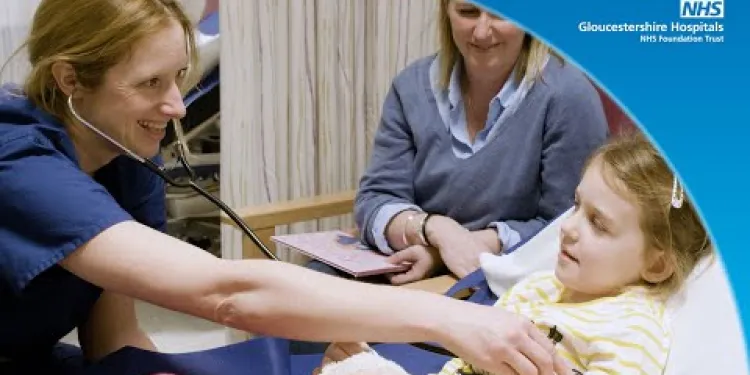
Having an operation at the Children’s Centre
Relevance: 100%
-
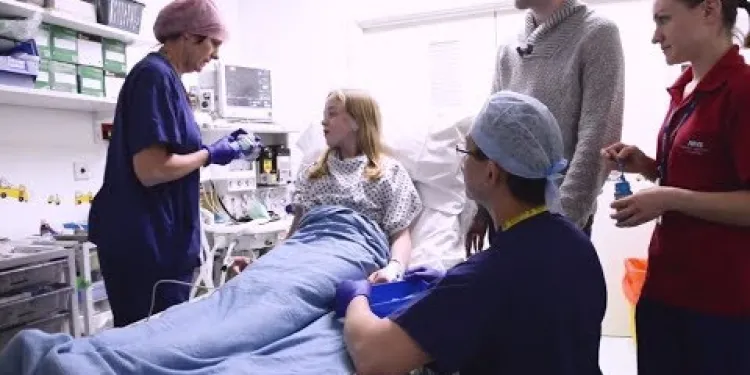
Having an operation in Oxford Children's Hospital with YiPpEe
Relevance: 54%
-

The Leeds Specialist Rehabilitation Centre - 3 Prosthetic Physiotherapy
Relevance: 46%
-

How can I contact the Winter Fuel Payment Centre?
Relevance: 45%
-
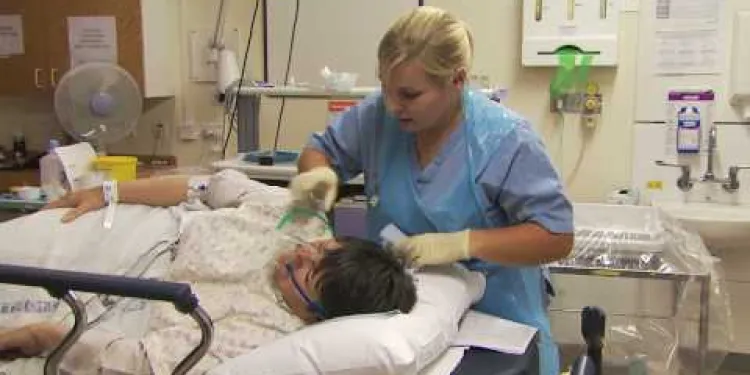
Bournemouth Digestive Diseases Centre: Endoscopy Procedure
Relevance: 40%
-
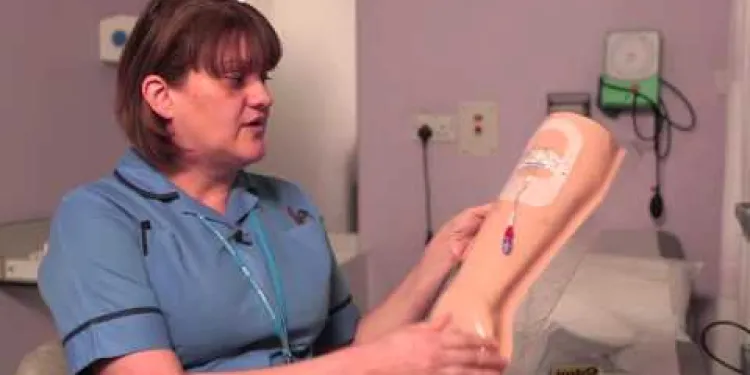
Chemotherapy - The Queen's Centre
Relevance: 39%
-
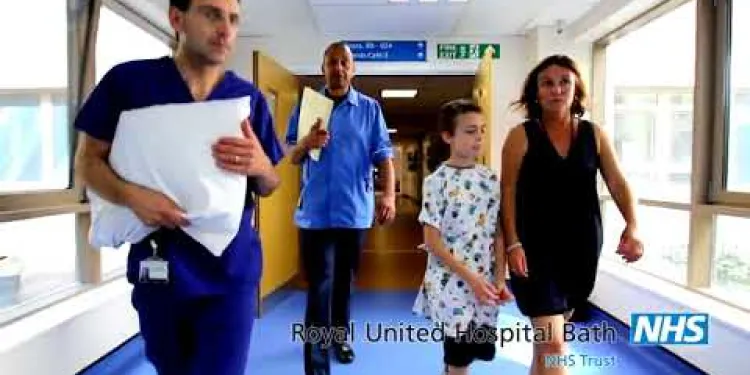
Having an anaesthetic for your operation - for over 8s
Relevance: 35%
-
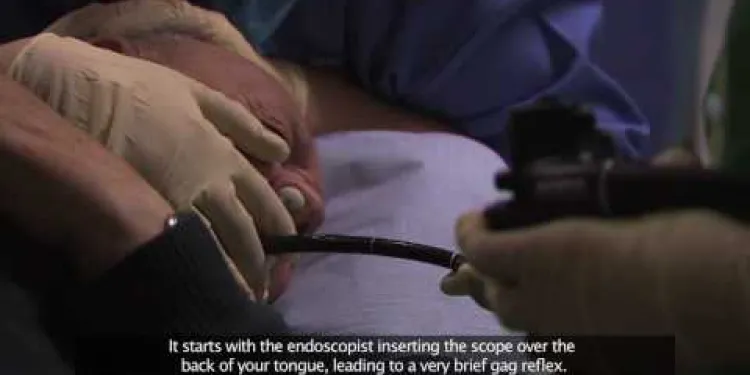
Bournemouth Digestive Diseases Centre: Gastroscopy Procedure (Subtitled)
Relevance: 35%
-
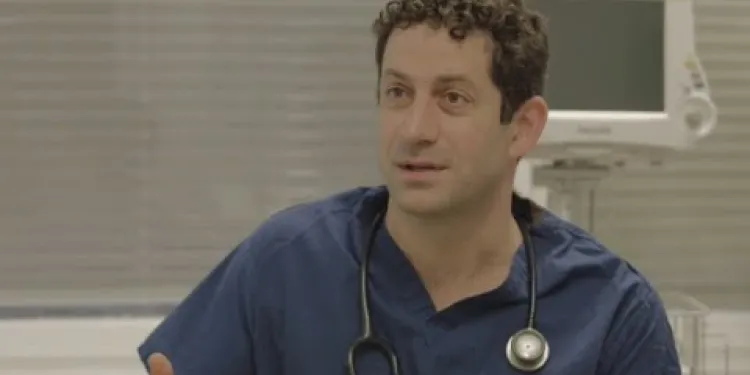
What to expect on the day of your operation
Relevance: 34%
-

Having an operation or procedure at the Royal Free London
Relevance: 34%
-

How often are operation waiting times updated?
Relevance: 34%
-
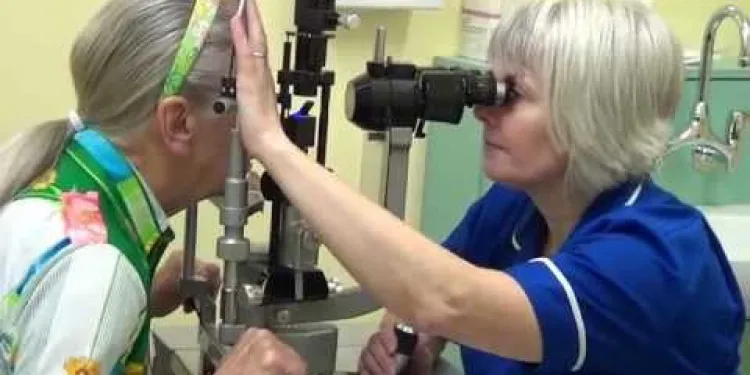
Your Cataract Operation
Relevance: 33%
-
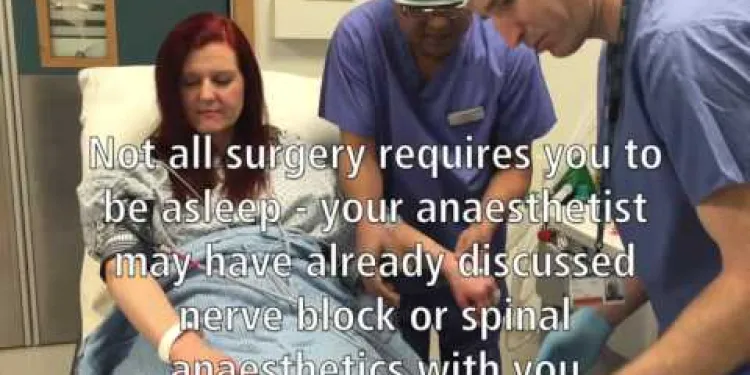
Your Operation at East Surrey Hospital
Relevance: 33%
-

Are there specific resources for urgent operation waiting times?
Relevance: 33%
-

Are there apps available to check operation waiting times?
Relevance: 33%
-

Does my doctor have access to operation waiting times?
Relevance: 32%
-

Can I get information on average waiting times for operations?
Relevance: 32%
-

Can I find operation waiting times in healthcare performance reports?
Relevance: 31%
-

Having an operation
Relevance: 31%
-

Do private hospitals have shorter waiting times for operations?
Relevance: 30%
-
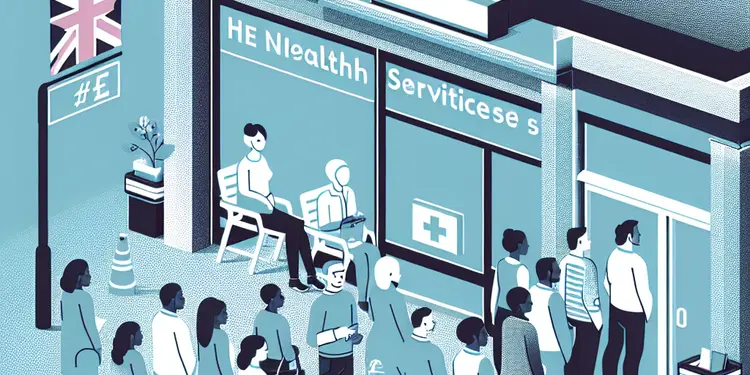
How can I find current waiting times for operations in my local hospital?
Relevance: 30%
-

Who are SEND children?
Relevance: 29%
-

What are SEND children?
Relevance: 29%
-

Is Baxdrostat suitable for children?
Relevance: 29%
-

What is lupus in children?
Relevance: 29%
-

Lupus in children | NHS
Relevance: 29%
-

Are waiting times for operations the same across all hospitals?
Relevance: 29%
-

Children's Vaccination Schedule
Relevance: 28%
-

How can I find information on waiting times for an operation in my area?
Relevance: 28%
-

Do groomers target children with specific vulnerabilities?
Relevance: 28%
-

What causes lupus in children?
Relevance: 28%
-

Is tooth decay common in children?
Relevance: 28%
-

Are there specific mobility equipment for children?
Relevance: 28%
-

Can children use Mounjaro?
Relevance: 28%
-

Can children outgrow asthma?
Relevance: 27%
-

Children With Co-ordination Difficulties and Dyspraxia
Relevance: 27%
-

Understanding Mental Health in Children
Relevance: 27%
-

Can Wegovy be used by children?
Relevance: 27%
-

Can defibrillators be used on children?
Relevance: 27%
-

Dyspraxia Children: How to Help
Relevance: 27%
Having an Operation at the Children’s Centre
Preparing for the Operation
Before your child's scheduled operation at the Children’s Centre, you will receive detailed instructions about what to do. This usually includes fasting guidelines, any necessary pre-operative medications, and what personal items to bring. Ensuring your child understands the process can help to reduce their anxiety. It’s also a good idea to bring along their favourite toy or comfort item.
Arriving at the Children’s Centre
Upon arrival, you will check in at the reception. A nurse will guide you and your child to a pre-operative area where your child’s health will be assessed and where you can meet the surgical team. This is also a good time to ask last-minute questions you may have about the procedure.
The Surgical Procedure
Once your child is prepared, they will be brought to the operating room. Parents are usually not allowed in the operating room, but rest assured that highly trained professionals will be taking care of your child. The length of the surgery will vary depending on the type of operation. You will be kept informed about your child’s status throughout the procedure.
Post-Operative Care
After the operation, your child will be taken to a recovery room where they will be closely monitored as they wake up from anaesthesia. The medical team will manage any pain or discomfort your child may experience. Once your child is stable, you will be brought in to be with them.
Going Home
Before you leave the Children’s Centre, you will be given detailed instructions on post-operative care at home. This typically includes information on medications, activity restrictions, wound care, and follow-up appointments. Don’t hesitate to ask the discharge team for clarification on any aspects of home care to ensure your child has a smooth recovery.
Having an Operation at the Children’s Centre
Getting Ready for the Operation
Before your child's operation at the Children’s Centre, you will get special instructions. You might need to stop eating for a while, take some medicine, and pack a bag with some personal things. Explain to your child what will happen to make them feel less worried. Bring their favourite toy or comfort item to help them feel better.
Getting to the Children’s Centre
When you arrive, go to the reception to check in. A nurse will take you and your child to a special area to check their health. You will meet the team doing the operation. This is a good time to ask any last questions you might have.
During the Operation
When your child is ready, they will go to the operating room. Parents usually can’t go in, but do not worry, skilled people will look after your child. How long the operation takes depends on what is being done. You will be told how your child is doing during the operation.
After the Operation
Your child will go to a recovery room. Here, nurses and doctors watch them as they wake up. They will help with any pain or discomfort. Once your child is okay, you can be with them.
Going Home
Before leaving, you will get instructions on looking after your child at home. This will include how to give medicine, what activities to avoid, caring for any wounds, and when to see the doctor again. If you’re not sure about something, ask the staff. This will help your child get better smoothly.
Frequently Asked Questions
1. How do I prepare my child for their operation?
You can help your child by explaining what will happen at an age-appropriate level, encouraging them to express any fears, and reassuring them that you'll be with them throughout the process.
2. What kind of anaesthesia will my child receive?
The type of anaesthesia will depend on the operation. Your child may receive general anaesthesia to make them sleep through the procedure or local anaesthesia to numb a particular area.
3. Can my child eat or drink before the operation?
Usually, children are not allowed to eat or drink for a specific period before the operation, often starting from midnight the night before. Make sure to follow the hospital's instructions regarding fasting.
4. What should I bring to the hospital?
Bring comfort items for your child such as a favourite toy or blanket, some loose-fitting clothes, essential toiletries, and any medications your child may need.
5. Will I be able to stay with my child in the hospital?
Parents are usually encouraged to stay with their child in the hospital. The Children's Centre typically provides facilities for parents to ensure they are comfortable during their stay.
6. How long will my child stay in the hospital?
The length of stay depends on the type of operation and your child's recovery. Some children go home the same day, while others may need to stay for a few days.
7. What will happen when we arrive at the hospital?
Upon arrival, you will check in, and your child will be given a room. A nurse or a staff member will explain the day's schedule, and your child will undergo any necessary pre-operative assessments.
8. Can I accompany my child to the operating room?
In most cases, parents are allowed to stay with their child until they go into the operating room. Afterwards, you can wait in the designated waiting area.
9. What precautions are taken to ensure my child's safety?
The hospital follows stringent safety protocols including thorough pre-operative assessments, use of sterile surgical equipment, and continuous monitoring of your child’s vital signs during the procedure.
10. How will I be informed about the progress of the operation?
The surgical team will provide updates during the operation, and you will be informed immediately once the operation is completed.
11. What should we expect in terms of post-operative care?
Post-operative care may include pain management, wound care, and instructions for physical activity. The medical team will provide specific guidelines tailored to your child's needs.
12. Can my child return to school after the operation?
Your child’s return to school depends on the type of operation and their recovery progress. The doctor will give specific advice on when it’s safe for your child to resume normal activities.
13. What should I do if we experience complications at home?
If you notice any signs of complications such as excessive pain, fever, or infection at the surgical site, contact the hospital immediately or visit the nearest A&E.
14. Will my child need follow-up appointments?
Yes, follow-up appointments are typically needed to ensure proper healing and to address any concerns. These will be scheduled before you leave the hospital.
15. How can I help my child manage pain post-operation?
Follow the pain management plan provided by your doctor, which may include medications and other comfort measures. Ensure your child gets plenty of rest and stays hydrated.
1. How can I help my child get ready for their operation?
You can help your child feel calm and ready for their operation by doing a few things:
- Talk to them in simple words about the operation. Explain what will happen and why it's needed.
- Read a story or watch a video about going to the hospital so they can understand better.
- Visit the hospital together to see where they will go for their operation. Some hospitals offer tours.
- Pack a bag with their favorite toy or blanket to bring with them for comfort.
- Practice calming techniques, like deep breathing or counting, to help them relax.
If you have more questions, you can ask the doctor or nurse for help.
You can help your child by talking to them. Use words they will understand for their age. Let them know what will happen and encourage them to talk about any worries they have. Tell them that you will be with them the whole time.
2. What type of medicine will my child get to sleep during the operation?
The kind of medicine used to stop pain will depend on the operation. Your child might get medicine to make them sleep during the operation. This is called general anaesthesia. Or your child might get medicine to make just one part of their body numb. This is called local anaesthesia.
3. Can my child eat or drink before the operation?
Before the operation, your child should not eat or drink anything. This helps keep them safe during the operation.
Here are some tips to help remember:
- Write a note or set a reminder so you remember when your child needs to stop eating and drinking.
- Ask the nurse or doctor if you have questions about when your child should stop eating or drinking.
Most of the time, kids can't eat or drink anything before their operation. This usually starts from midnight the night before. It's important to do what the hospital says about not eating or drinking.
4. What should I bring to the hospital?
Here is a list of things to bring to the hospital:
- Your ID or health card
- Comfortable clothes
- Toothbrush and toothpaste
- A book or toy
- Your phone and charger
You can also use picture cards or ask someone to help you pack.
Bring things that make your child feel good. This can be a favorite toy or a soft blanket. Pack some comfy clothes, important bathroom items, and any medicine your child needs.
5. Can I stay with my child in the hospital?
Yes, you can stay with your child in the hospital. Hospitals will usually have places for parents to sleep. You can ask the nurse or doctor where you can stay.
If you have questions, it is okay to ask the hospital staff. They are there to help you and your child.
You can use tools like audio recordings or ask someone you trust to help you understand the information.
Parents can usually stay with their child in the hospital. The Children's Centre has things to help parents feel comfortable when they stay.
6. How long will my child stay in the hospital?
How many days will my child need to stay in the hospital?
This means asking the doctor how many days or nights your child will sleep in the hospital. It's good to ask if they will be there for a short time or a long time. You can use a calendar to keep track of the days.
How long your child stays in the hospital depends on the operation and how quickly they get better. Some children can go home the same day. Other children might need to stay for a few days.
7. What happens when we get to the hospital?
Here is what will happen when you get to the hospital:
- Someone will meet you. They are called a receptionist. They help you know where to go.
- You might have to wait for a little while. Waiting means sitting until it's your turn.
- A nurse or doctor will come and see you. They will check how you are feeling.
Things you can do:
- Bring a favorite toy or book. This can help you feel calm.
- Ask questions if you feel unsure. It is okay to ask for help.
When you get there, you will tell the people that you have arrived. Your child will get a room. A nurse or staff member will tell you what will happen during the day. They will also do any important health checks for your child before the operation.
8. Can I go with my child to the operating room?
Yes, you might be able to go with your child to the room where they have the operation. This depends on the hospital rules. You can ask the nurse or doctor if you can go. It is important to be calm and comforting for your child. You might only be able to stay until your child is asleep.
Try deep breathing to help you stay calm. If you're feeling worried, talk to the hospital staff. They can answer your questions and help you understand what happens next.
It can also help to bring a favorite toy or blanket for your child. This can make them feel better.
Most of the time, mums and dads can stay with their child until it's time for the operation. After that, you can wait in the special waiting room.
9. How do you keep my child safe?
We look after your child by following important safety steps. We make sure the place is safe, and all the grown-ups are helpful and kind. We also have rules everyone should follow to stay safe.
If reading is hard, you can ask someone to read the question with you. You can also try using tools like audiobooks to hear the words.
The hospital is very careful to keep everyone safe. Before your child has surgery, doctors check them carefully. They use clean tools during the surgery. They also watch your child closely to make sure they are okay.
10. How will I know how the operation is going?
We will tell you how things are going during the operation. People like doctors or nurses can talk to you or your family. If you want, you can ask someone to sit with you and help you understand the words. Pictures or drawings might also help you know what is happening.
The doctors and nurses will tell you what is happening during the surgery. They will let you know as soon as it is finished.
11. What happens after the operation?
After the operation, you will need care. This means looking after yourself or having someone help you. Here are some things to expect:
- Rest: You should take it easy and not do too much.
- Pain: You might feel some pain. Tell a grown-up if it hurts.
- Medicine: You may need to take medicine to feel better. Ask for help if you need it.
- Doctor Visits: You might need to go back to the doctor to check you are healing well.
If you find it hard to remember things, you can:
- Write things down.
- Use pictures to help you understand.
- Ask someone you trust for help.
After surgery, your child may need help with things like pain, looking after wounds, and exercise. The doctors and nurses will give you special instructions just for your child.
12. Can my child go back to school after the surgery?
Your child might feel tired and need to rest after the surgery. Talk to your child's doctor to know when it's okay to go back to school.
You can also make a checklist of things your child might need help with, like carrying a backpack or walking up stairs.
Your child can go back to school after an operation when the doctor says it's okay. It depends on what kind of operation they had and how well they are feeling. The doctor will tell you when it is safe for your child to start doing normal things again.
13. What should I do if we have problems at home?
If you see anything wrong, like a lot of pain, a fever, or the area where you had surgery is sore and red, tell the hospital right away or go to the nearest emergency room.
14. Will my child need more doctor visits?
Yes, your child might need to see the doctor again. This is to make sure they are getting better. These are called follow-up appointments.
Here are some helpful tips:
- Always write down the date and time of the next visit.
- Bring any medicine your child is taking to show the doctor.
- Ask the doctor any questions you have about your child’s health.
- Take notes during the visit to help you remember what the doctor says.
Yes, you will need to come back to the doctor for check-ups. This helps to make sure you are healing well and to talk about any worries you have. The doctor will set up your next visit before you leave the hospital.
15. How can I help my child with pain after their operation?
Here are some simple steps to help your child feel better after their operation:
- Give Medicine: Follow the doctor’s instructions to give your child medicine if they are in pain. This will help them feel better.
- Rest and Relax: Make sure your child has a quiet and comfortable place to rest. This will help their body heal.
- Use a Soft Pillow: Give your child a soft pillow to support their body where it hurts. This can make them feel more comfortable.
- Distraction: Help your child think about something else, like a favorite story, show, or game. This can take their mind off the pain.
- Ask for Help: Always talk to the doctor or nurse if your child’s pain does not get better or if you are worried about anything.
These tips can make your child more comfortable and help them feel better after their operation.
Listen to what the doctor says about managing pain. This might include taking medicine and doing other things to feel better. Make sure your child gets lots of rest and drinks enough water.
Useful Links
This website offers general information and is not a substitute for professional advice.
Always seek guidance from qualified professionals.
If you have any medical concerns or need urgent help, contact a healthcare professional or emergency services immediately.
Some of this content was generated with AI assistance. We’ve done our best to keep it accurate, helpful, and human-friendly.
- Ergsy carfully checks the information in the videos we provide here.
- Videos shown by Youtube after a video has completed, have NOT been reviewed by ERGSY.
- To view, click the arrow in centre of video.
- Most of the videos you find here will have subtitles and/or closed captions available.
- You may need to turn these on, and choose your preferred language.
- Go to the video you'd like to watch.
- If closed captions (CC) are available, settings will be visible on the bottom right of the video player.
- To turn on Captions, click settings .
- To turn off Captions, click settings again.
More Items From Ergsy search
-

Having an operation at the Children’s Centre
Relevance: 100%
-

Having an operation in Oxford Children's Hospital with YiPpEe
Relevance: 54%
-

The Leeds Specialist Rehabilitation Centre - 3 Prosthetic Physiotherapy
Relevance: 46%
-

How can I contact the Winter Fuel Payment Centre?
Relevance: 45%
-

Bournemouth Digestive Diseases Centre: Endoscopy Procedure
Relevance: 40%
-

Chemotherapy - The Queen's Centre
Relevance: 39%
-

Having an anaesthetic for your operation - for over 8s
Relevance: 35%
-

Bournemouth Digestive Diseases Centre: Gastroscopy Procedure (Subtitled)
Relevance: 35%
-

What to expect on the day of your operation
Relevance: 34%
-

Having an operation or procedure at the Royal Free London
Relevance: 34%
-

How often are operation waiting times updated?
Relevance: 34%
-

Your Cataract Operation
Relevance: 33%
-

Your Operation at East Surrey Hospital
Relevance: 33%
-

Are there specific resources for urgent operation waiting times?
Relevance: 33%
-

Are there apps available to check operation waiting times?
Relevance: 33%
-

Does my doctor have access to operation waiting times?
Relevance: 32%
-

Can I get information on average waiting times for operations?
Relevance: 32%
-

Can I find operation waiting times in healthcare performance reports?
Relevance: 31%
-

Having an operation
Relevance: 31%
-

Do private hospitals have shorter waiting times for operations?
Relevance: 30%
-

How can I find current waiting times for operations in my local hospital?
Relevance: 30%
-

Who are SEND children?
Relevance: 29%
-

What are SEND children?
Relevance: 29%
-

Is Baxdrostat suitable for children?
Relevance: 29%
-

What is lupus in children?
Relevance: 29%
-

Lupus in children | NHS
Relevance: 29%
-

Are waiting times for operations the same across all hospitals?
Relevance: 29%
-

Children's Vaccination Schedule
Relevance: 28%
-

How can I find information on waiting times for an operation in my area?
Relevance: 28%
-

Do groomers target children with specific vulnerabilities?
Relevance: 28%
-

What causes lupus in children?
Relevance: 28%
-

Is tooth decay common in children?
Relevance: 28%
-

Are there specific mobility equipment for children?
Relevance: 28%
-

Can children use Mounjaro?
Relevance: 28%
-

Can children outgrow asthma?
Relevance: 27%
-

Children With Co-ordination Difficulties and Dyspraxia
Relevance: 27%
-

Understanding Mental Health in Children
Relevance: 27%
-

Can Wegovy be used by children?
Relevance: 27%
-

Can defibrillators be used on children?
Relevance: 27%
-

Dyspraxia Children: How to Help
Relevance: 27%


